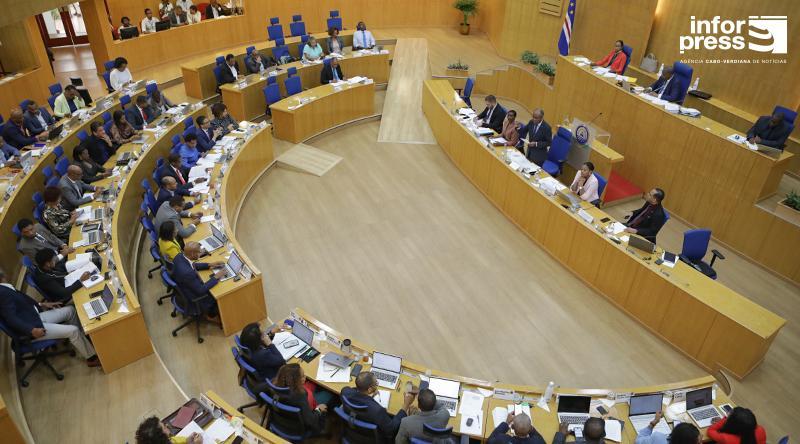
Africa-Press – Cape verde. The proposed law that approves the new statute of municipalities was approved this Tuesday, in general, by parliament with a simple majority and subsequently the PAICV (opposition) filed an appeal against the board’s decision, which, however, was rejected.
The diploma submitted to the vote in general was approved as it received 35 votes in favor, 31 from the Movement for Democracy (MpD – power) and four from the Independent and Democratic Cape Verdean Union (UCID) and 20 votes against from the African Party of Independence of Cape Verde (PAICV).
At first, the leader of the PAICV bench, João Baptista Pereira, questioned the table, currently chaired by the vice-president, Arlindo Luz, warning that the diploma, which claims to be of “reinforced value”, requires a qualified majority, as well as happened with the current law, approved in 1995.
Otherwise, reinforced João Baptista Pereira, the Constitution of the Republic is being violated.
“Article 166, line I of the Constitution of the Republic, is very clear in how these matters are needed by the majority of thirds of deputies”, said the representative of the main opposition party, stressing that the failure to approve the diploma during all this time has precisely with the fact that the necessary consensus was not reached for this diploma to be changed.
In the same vein, UCID deputy António Monteiro intervened, who also asked for clarification on the matter, since, as he highlighted, there were no changes to the legislation that support approval of the statute of municipalities with a simple majority.
Reacting, the acting president of the Assembly, Armindo Luz, explained that the decision was taken based on an opinion from the Specialized Committee on Constitutional Affairs, Human Rights, Security and State Reform (1st committee) which advised that the proposed law which approves the new statute of municipalities can indeed be approved with a simple majority.
“In point number two, the opinion report of the 1st Commission reads as follows: Regarding the majority required to approve this diploma, a simple majority is sufficient for its approval, in accordance with number two of article 161 of the Constitution of the Republic of Cape Town Green, as all matters relating to municipal elections and the status of the heads of local authority bodies were removed from this proposed law”, he cited.
Armindo Luz stressed that the board and the president, at no point, ignored the Constitution and other laws of the Republic.
The same arguments were presented by the leader of the MpD bench, Paulo Veiga, and the minister of Territorial Cohesion and Parliamentary Affairs, Janine Lélis, who suggested that, if the PAICV is not in agreement with the opinion and the result of the vote, it should appeal to the courts for the necessary clarification and requesting the nullity of the decision.
Given these positions, the leader of the PAICV parliamentary group presented an appeal to the board’s decision, which, submitted to a vote, was rejected with 24 votes in favor, 20 from PAICV and four from UCID and 32 votes against from MpD.
Before the end of the work, João Baptista Pereira regretted what he classified as “approval of the new statute in defiance of the Constitution”, stating that this case calls for “deep political reflection”, since the diploma in reference did not even deserve an absolute majority of the 72 deputies that the Cape Verdean parliament has.
Among the changes are the reinforcement of decentralization, which “effectively involves the attribution of more powers to municipal councils”.
According to the Minister of Territorial Cohesion, this new law is expected to put into action a decentralization strategy that will increase the productivity and income of all segments of society and the equitable distribution of the gains from GDP growth to all citizens, as well as the materialization of this program of legal and institutional reforms that will create the conditions for achieving the new paradigm of territorial governance in the country, appropriate to the present times of convergence.
For More News And Analysis About Cape verde Follow Africa-Press





